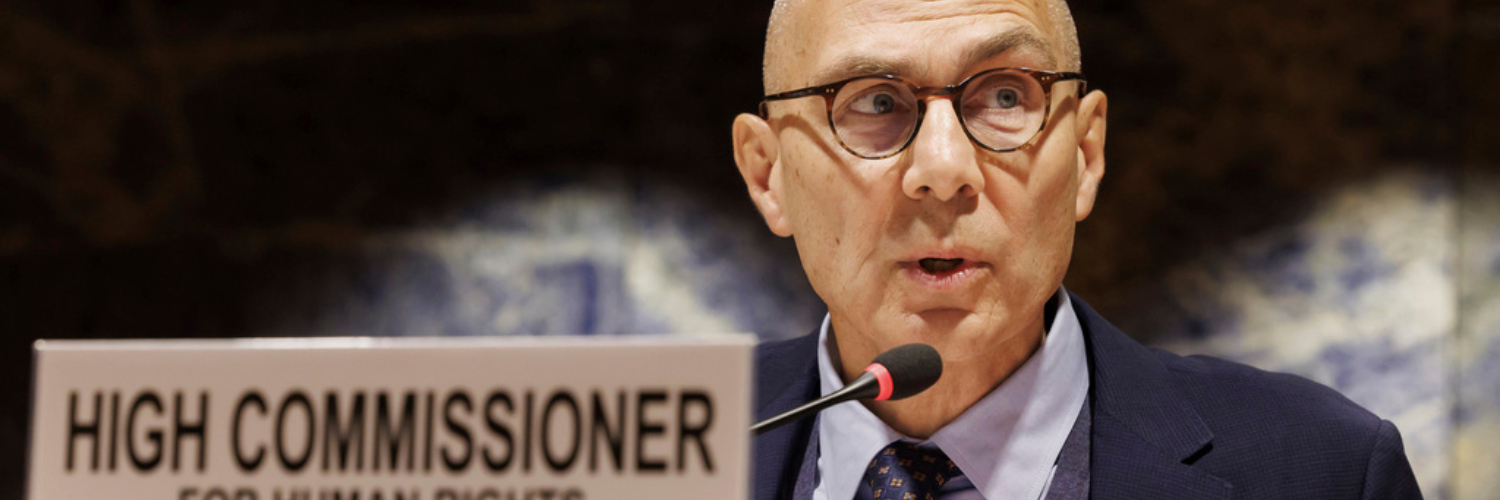NEW YORK, January 19 (C-Fam) The UN High Commissioner for Human Rights Volker Türk has aggressively criticized Facebook’s recent decision to stop censoring online speech. Türk pushed back on X and LinkedIn, saying that regulating online speech is not censorship and that his office will continue to “call for accountability and governance in the digital space.”
Türk said, “When we call efforts to create safe online spaces ‘censorship’, we ignore the fact that unregulated space means some people are silenced – in particular those whose voices are often marginalized.”
Türk’s posts came three days after Facebook CEO Mark Zuckerberg announced that Facebook would stop fact-checking social media content and that it would roll back on its content regulation policies. “We’ve reached a point where it’s just too many mistakes and too much censorship,” Zuckerberg said.
When explaining what went wrong with fact-checkers, Zuckerberg said that they “were too politically biased and they have destroyed more trust than they created, especially in the US.” In his announcement, Zuckerberg emphasized that regulating online speech ended up silencing millions of people, thus hindering the free exchange of ideas on a number of contentious topics, including immigration and gender. “It’s not right that things can be said on TV or the floor of Congress, but not on our platforms,” wrote Joel Kaplan, Chief Global Affairs Officer at Facebook.
Critics say that Zuckerberg’s realization came far too late and that he cannot be absolved from the consequences of his past actions – including allowing his company to conduct massive censorship for years. “No, Mark Zuckerberg doesn’t get to go on Joe Rogan’s podcast and pretend he’s a free speech champion as if there were nothing he could have done to stop the censorship at Facebook that rigged the 2020 election and probably cost lives during the pandemic,” wrote Miranda Devine at the New York Post. Devine was the reporter who broke the Hunter Biden “laptop from hell” story that Facebook banned for a time.
Türk’s support of online content regulation aligns with that of UN agencies, trusting that UN bureaucrats and third-party “human rights expert groups” can objectively and reliably define “misinformation,” “disinformation,” and what is “fact-based.” “It remains crucial for us to be present with fact-based information,” said Michele Zaccheo, Chief of TV, Radio and Webcast at the United Nations Information Service in Geneva.
In its Global Principles For Information Integrity, the United Nations encourages technology platforms to collaborate with the kind of third-party content moderators that Facebook is now distancing itself from. The principles recommend cooperation “with independent, third-party organizations to develop content moderation processes in line with international human rights standards and ensure that such policy is enforced consistently and non-arbitrarily across areas of operation.”
The principles also ask for the establishment of an oversight body of “human rights” auditors to deal with “terms of service and community standards; trust and safety and advertising policies; risk management; the impacts of advertising and recommender systems across language and operational contexts; content moderation; complaints and appeals processes.”
In its 2023 Guidelines for the Governance of Digital Platforms, UNESCO says that digital platforms have a responsibility to “adhere to international human rights standards, including in platform design, content moderation, and content curation” and that intergovernmental organizations can play a role in supporting member states to implement the Guidelines through “technical assistance, monitoring and reporting human rights violations, [and] developing relevant standards.”
View online at: https://c-fam.org/friday_fax/un-rights-chief-criticizes-facebooks-rollback-on-censorship/
© 2025 C-Fam (Center for Family & Human Rights).
Permission granted for unlimited use. Credit required.
www.c-fam.org









